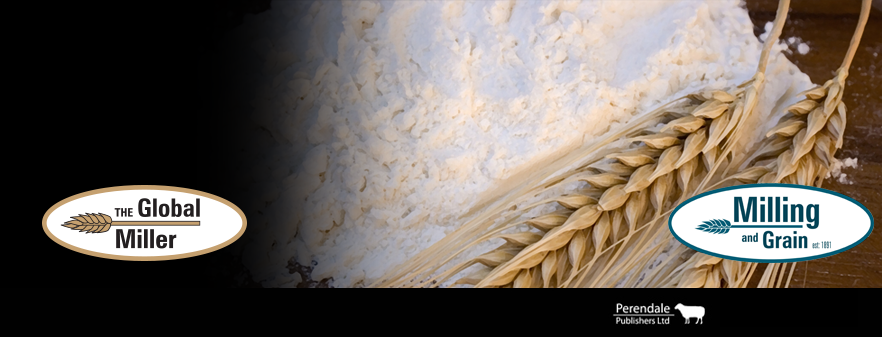Mr Xavier Bourbon is the President of Les Journées Techniques des Industries Céréalières (commonly known as JTIC), a key event for the milling sector held annually in France. Growing up with a father who specialised in the milling and crops sector, Mr Bourbon has always held an interest and appreciation for cereals and milling, which he now uses in his work as president, helping to coordinate the annual exhibition.
How long have you been involved in the milling industry? Have you grown up learning about this sector?
I have been in the milling and cereals industry since I was a kid. My father was a professor in cereals biochemistry at the Ecole Nationale Supérieure de Meunerie et des Industries Céréalières, France.
How long have you been involved in the industry personally, after graduating from university?
After my studies, I worked three years in the industry. I was directly responsible for a mill which produced three tonnes of flour per day. This mill was producing a significant amount of flour for export, primarily to Africa, and also flour for industries such as boulangerie and other baking products. I eventually left this position to take over a consulting agency in the cereals industry. I am currently the President of this cabinet for JTIC, the Cabinet Bourbon.
Ever since I was a young student, I was regularly attending JTIC every year. I wanted to learn more about the grain industry and JTIC helped further this passion.
How important do you believe education is in the milling industry?
It is more important than ever. The competition between companies in the milling industry is a challenge for mills. Primary knowledge and know-how of the milling and flour techniques and science are, therefore, a necessity. Millers need to know how to plan and implement mill settings and adjustments with different wheat varieties, in order to produce a certain quality of flour. It is a know-how that needs to be learnt, for people to prosper in the industry.
Is there consolidation in French milling industry?
Yes, there is, like in many countries, a consolidation quite important in the milling industry. 30 years ago, there were 900 mills in France, back when I started working. Nowadays, this figure is closer to 400 mills. This trend is continuing with five or six milling groups that own a certain number of plants but there are still independent mills with different and varied plant sizes.
Is there a significant difference between the French milling sector and others? If so, what is that difference?
France has a food history and tradition and has a lot of different flour applications. A specific trait of French mills is their unique multi-application ability. There is not only the French baguette, we produce breads in vast varieties. The market is very diversified and French mills need to be able to utilise different flours for various applications.
How important are the international connections with training or knowledge?
JTIC is not just for millers but also for cereals dealers. One crucial goal for JTIC is to play host to more international exhibitors and to, therefore, be able to benefit from them, their products or services. Conducting sales is not necessarily the aim of JTIC, as the French flour industry is still discovering more about the intricacies of exporting. Indeed, African countries, for instance, now have their own plants, so their needs have decreased.
How important is the international market’s influence or how important is France’s influence on the international market when it comes to milling?
There is an internationalisation in food. Even if France has an important food culture independent of other countries and their own ideas, France is being influenced by food from other countries. We are now able to use our flour to produce foreign food, like Swedish bread or hamburgers, which are always exciting to learn more about.
What will be the role of JTIC in the future? What key things should JTIC do in the future to ensure a profitable future for the industry?
JTIC has always been a meeting point with two days of networking and great opportunities for members of the milling sector. We also want JTIC to bring information and news about innovations, equipment and processing technologies. Our target is that, when visitors come to JTIC to attend the conferences or the exhibition, they find what they came for and leave satisfied.
It is also a great way to build a bridge between generations (from students and current millers through to equipment manufacturers). It is an opportunity for students to find a job or dip their toes into the professional world and learn more about life after their studies.



















